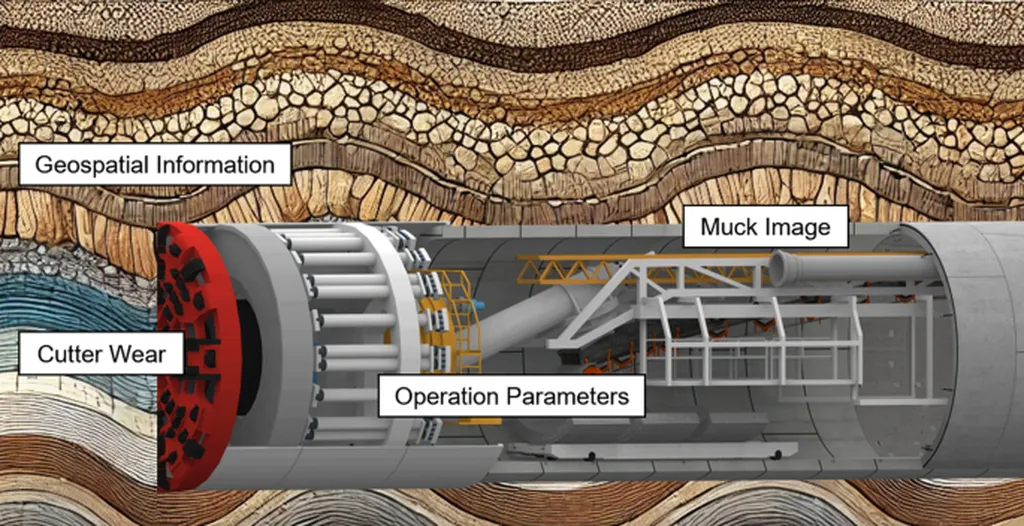In the ever-evolving landscape of tunnel construction, predicting the performance of tunnel boring machines (TBMs) has been a persistent challenge, particularly in complex geological conditions. A groundbreaking study led by Xiaobing Wei from the Engineering and Technology Department has introduced a novel approach to this problem, leveraging the power of deep learning to enhance prediction accuracy and efficiency. The research, published in the journal *Advances in Civil Engineering* (translated as *Advances in Civil Engineering*), promises to revolutionize the way we approach TBM parameter prediction, with significant implications for the energy sector and large-scale infrastructure projects.
The study addresses the critical need for improved accuracy in TBM parameter prediction models, especially in scenarios with limited data. Wei and his team propose a generative adversarial network (GAN)-enhanced framework that integrates deep neural networks (DNNs), long short-term memory (LSTM) networks, and convolutional neural networks (CNNs) through a sophisticated three-tiered architecture. This innovative approach not only generates virtual samples that closely mimic real data but also optimizes the parameters of the prediction networks synchronously.
“We aimed to create a model that could handle the complexities of TBM tunneling by generating high-quality virtual data and leveraging the strengths of different neural networks,” Wei explained. “The results have been promising, demonstrating the adaptability and accuracy of our model across various engineering scenarios.”
The practical validation of the GAN-CNN model in the Jilin Songliao Water Diversion Project and the Qingdao Metro Project showcased impressive results. In the Jilin project, the model achieved a root mean squared error (RMSE) of 0.041 and a coefficient of determination (R2) of 0.912 for total thrust prediction. For the Qingdao Metro Project, the model yielded an RMSE of 0.069 and an R2 of 0.822, highlighting its versatility and reliability.
The implications of this research for the energy sector are profound. Accurate TBM parameter prediction is crucial for the efficient and safe construction of tunnels, which are integral to energy infrastructure projects such as hydroelectric power plants, oil and gas pipelines, and renewable energy installations. By enhancing prediction accuracy, this technology can reduce construction costs, minimize delays, and improve overall project outcomes.
“We believe that our model can significantly enhance the efficiency and safety of tunnel construction, particularly in the energy sector,” Wei added. “This technology has the potential to transform the way we approach large-scale infrastructure projects, making them more cost-effective and reliable.”
While the study acknowledges limitations, such as incomplete sample coverage and insufficient consideration of geological parameters, the future looks bright. Wei and his team plan to expand the dataset, optimize the model, and explore more advanced algorithms to further enhance prediction accuracy and generalization capabilities.
As the demand for tunnel construction continues to grow, the need for accurate and reliable TBM parameter prediction models becomes increasingly critical. This research not only addresses this need but also paves the way for future advancements in the field. By harnessing the power of deep learning, we can unlock new possibilities for efficient and safe tunnel construction, ultimately driving progress in the energy sector and beyond.

